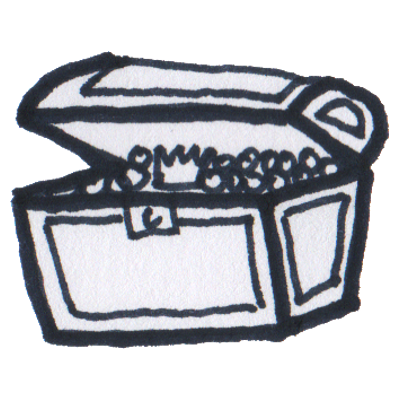The attentive readers of my blog have probably noticed it. On Monday my compass article, didn’t happen. I had a problem with my database last weekend and spent my time repairing it. After this is fixed, we can continue with treasure #43.
Nugget #1 comes from Gunnar Sohn. His article continues the topic of ambidextry from the past treasures. The article starts with a look at how many jobs will be eliminated by artificial intelligence and automation. Even though the figures vary, everyone agrees that a significant portion of jobs will be replaced. I endorse Gunnar’s thesis that in most cases attention is paid to increasing productivity. Do more with less! Unfortunately, the great opportunity to invest the free time in entrepreneurship is not used. Instead, an innovation cargo-cult is happening and beautiful “garages” and “labs” are built. These are then rationalized away from the financial controller for lack of results. Unfortunately, Gunnar Sohn doesn’t show us any alternatives. A classic “rant”, but nice to read and simply puts its finger into the wounds of many companies.
When companies only sweat out efficiency (5 min, text, German)
Nugget #2 was written by Conny Dethloff, who already contributed a nugget to treasure 37. Together with Alexander Gerber and Björn Czybik, who are both part of my network, Conny regularly exchanges views on complexity in a trialogue. Many companies today are faced with complexity at a loss or are not even aware of it. This starts with the differentiation of the terms complicated and complex. Conny’s article is a summary of the first trialogue and not “fast food”. The investment in time certainly exceeds the specified pure reading time. What did I learn from the article? Most of our tools today are made for “dead” systems and were developed in times of industrialization. But we neglect the human factor. Moreover, we often try to create causalities and ignore the fact that these do not exist in a complex world. In my company, for example, there are measurement variables for successful products, which is a dangerous causality for me. But my biggest takeaway is this quote:
Accordingly, it would also be fatal to want to shape a change or the handling of complexity on the basis of methods. Nevertheless, we do it again and again in the context of the company, even if we perceive the failures.
I still run into this trap often enough myself. So what tools are available? This is what Conny describes in the summaries of the other trialogues.
A Trialogue – Do we need new tools for complexity? (10 min, text, German)
Nugget #3 is a scientific paper on remote work. There is often the opinion that remote work has a negative impact on performance and communication is also getting worse. A group of scientists from Stanford University conducted an experiment over nine months. The test object was the Chinese travel agency Ctrip with 16,000 employees. From one of the call centers, a group of 994 employees was considered, of whom 249 employees were selected as a trial group. The six-month experiment measured various productivity and performance parameters. This has had a positive impact on productivity, fluctuation and other indicators. Even if this is only one company, from one industry and one country, the results speak for themselves and hopefully encourage other companies to start such an experiment.
DOES WORKING FROM HOME WORK? (60 min, text, English)
That’s it for this week. Have a good weekend!
